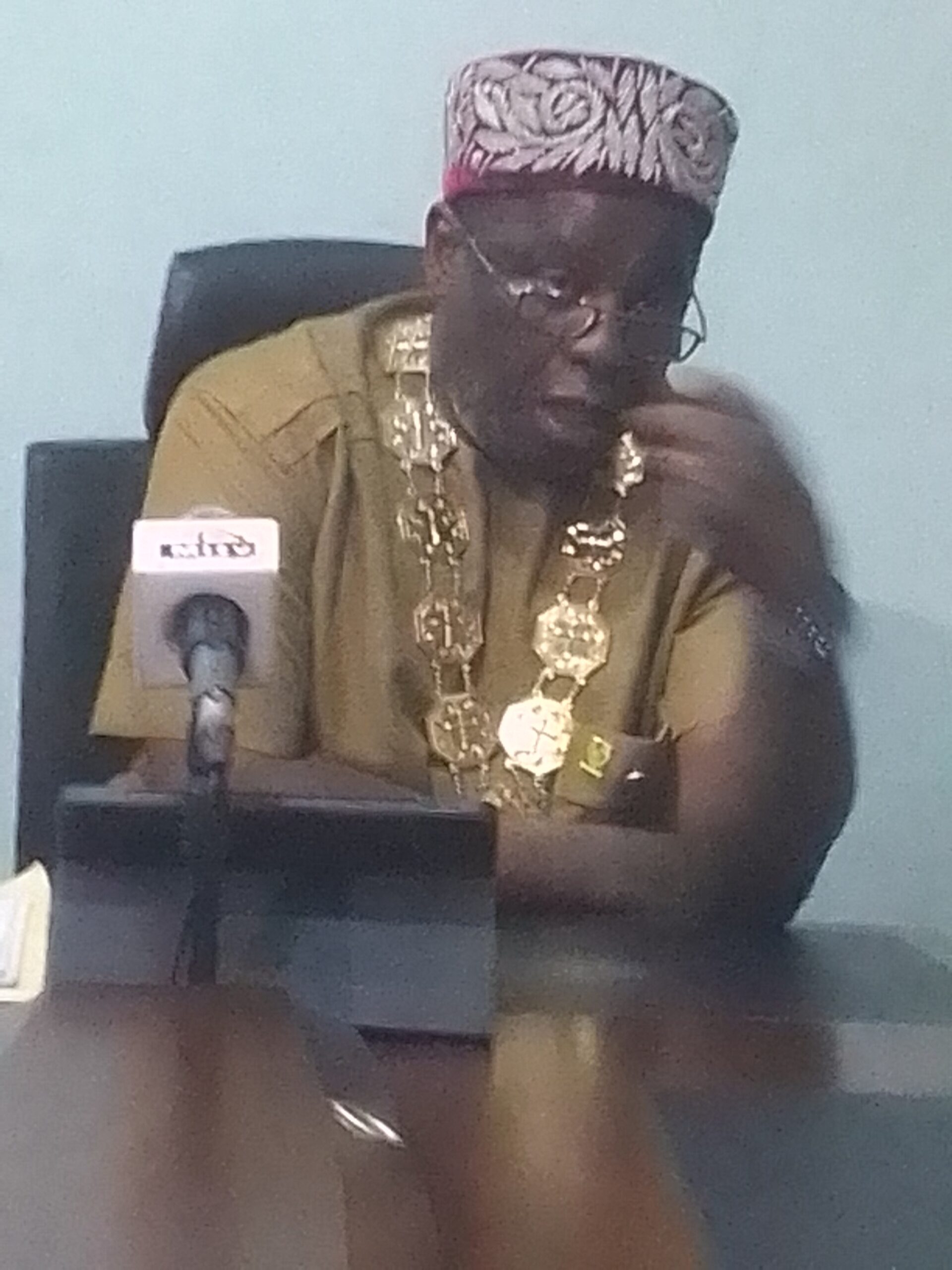•Tales of domestic violence that ended in tragedy
By Bianca Iboma-Emefu
They stood before family, friends and God. Smiles beamed, vows were exchanged and rings slid onto trembling fingers. It was meant to be the beginning of a fairytale journey. But for countless Nigerian women, what begins with roses at the altar ends with wreaths on the coffin.

googletag.cmd.push(function() { googletag.display(‘div-gpt-ad-1718806029429-0’); });
Take the case of Osinachi Nwachukwu, the popular gospel singer. To the world, she was the voice of heaven. At home, she was allegedly the punching bag of the man who vowed to love and cherish her. Her tragic death in April 2022 shocked the nation, sparking tears, outrage and uncomfortable questions: how many more women are being silently murdered in their matrimonial homes?

Mrs. B. Yekini from Lagos never made the headlines. Her wedding was a spectacle of love, her obituary a whisper of shame. “He started with shouting, then the slaps came, then the brutal beatings,” her neighbour recalled, tears in her eyes. “Before we knew it, she was gone.”

From Lagos to Kano, Port Harcourt to Abuja, the stories repeat with frightening similarity—wives beaten, strangled, stabbed or poisoned by the very men who once went down on one knee to propose.
For a decade, Domestic Violence Anonymous (DVA) clinic has waged an unrelenting war against abuse, heartbreak and death in the home. Born out of the passion of fiery lawyer and women’s rights advocate, Efe Anaughe, the initiative has become the last line of defence for women battered and bruised by men they once called husbands.
From dragging abusive spouses before the law, to rescuing terrified victims from homes turned into torture chambers, to creating safe havens where society often looks away, DVA has stood like a shield for women on the brink.
“Too many of our women have been silenced by blood and bruises,” Anaughe thundered at a recent event. “Marriage should not be a death sentence. It must stop.”
Anaughe, who also anchors a popular radio programme, revealed that DVA’s monthly meetings are deliberately held on the last Monday of every month. “That way,” she explained, “the husbands won’t easily notice their wives’ absence. I even encourage the women to dress beautifully—not only to boost their self-esteem, but also so no one suspects they’re attending a clinic for survivors of violence.”
The process at DVA is both rigorous and structured. Every new arrival—referred to only as “Jane”—is first received by Anaughe herself. The anonymity is deliberate. No names are shared. No identities revealed. Just “Jane.”
“Most times, when a woman walks in here of her own accord, it means she’s had enough,” Anaughe said. “But being tired of abuse is one thing. Taking the bold step to end it is another. We must be sure she is ready for the journey.”
Each Jane undergoes physical and psychiatric evaluation before the long road to recovery begins. Anaughe personally counsels them and, in some cases, even attempts reconciliation with abusive spouses—though this rarely works. “The decision to leave,” she insists, “must come from the woman herself. No one can make it for her.”
At DVA meetings, Janes share their stories. One told how she was once a successful businesswoman before her pastor-husband began accusing her of infidelity with clients. To please him, she abandoned her thriving business. But the beatings did not stop. Instead, with several children and no source of income, she endured in silence for years—until she finally broke.
Another Jane recounted how her husband—ironically her so-called ‘better half’—got her committed to a psychiatric hospital, despite her being a top professional in her field.
But it is not all tragedy. Many stories at DVA are triumphs. One Jane, now a volunteer, recalls sleeping in a school building for months with her children after fleeing her marriage. Today, those children are educated, stable and thriving. Another volunteer is joyfully engaged to a kind, responsible man with whom she has built a flourishing business. These women now return to DVA to encourage the others, living testimonies that survival is possible.
Still, one of the toughest battles remains shelter. Too often, women and their children are uprooted from their lives, forced to flee to far-flung states—Ogun, Oyo, Osun, even as far as the FCT—just to escape violent husbands. Some volunteers offer temporary accommodation, but it is rarely sustainable. For many Janes, safety comes at the price of changing schools, abandoning businesses and sacrificing their private lives.
Through it all, Anaughe urges the women to rebuild their finances, live with purpose and never again surrender to violence.
Ironically, Anaughe has never been a victim of domestic violence herself. She stumbled on the subject completely by accident, while working on something else. “I found that a disturbing number of women are physically abused in their marriages, yet do not speak out about it for various psycho-social reasons. I decided to create a haven for them where they can take their time and heal, as well as help one another.”
Ten years down the line, she has no regrets, though she decries the trend where genuine NGOs are used and dumped by various levels of government while receiving little or no support.
Survivor voices:
“He beat me with a belt while I was pregnant,” Zainab, 34, recalled.
“The first slap came just three months after our wedding. I thought it was a mistake. Then it became routine. When I got pregnant, he beat me with a belt, telling me I was too slow. I lost that pregnancy. The second time he nearly killed me, a neighbour called DVA. Anaughe took my case. Today, I’m alive, raising my two children in peace.”
“He locked me in for three days without food” Ngozi, 29, said.
“People saw me as a banker’s wife. They didn’t know I lived like a prisoner. He would beat me, then lock me in for days without food. I almost lost my mind. One night, I escaped and called DVA’s hotline. They gave me shelter, stood by me in court and, today, I’m free. If not for them, I would have been in the grave by now.”
“My son watched him strangle me,” Aisha, 41, narrated. “The night I decided to run, he was pressing my neck on the floor. My seven-year-old son was screaming, ‘Daddy, don’t kill Mummy!’ That broke me. I knew if I stayed, my children would grow up motherless. DVA rescued us. They gave me a lawyer, gave me strength. Now I tell other women: speak up before it’s too late.”
But why do so many women endure abuse until it kills them? Poverty. Fear of shame. Family pressure. Religious leaders urging women to “pray harder” instead of fleeing danger. Some mothers even beg their daughters to “stay for the children.”
The result? Women smile at the altar but bleed on their matrimonial bedsheets.
The grim reality is that one in three Nigerian women suffers physical or sexual violence in marriage. Dozens die every year at the hands of their husbands. Thousands more live like ghosts, trapped in violent homes.
Activists warn the numbers are even higher, because most cases are buried in silence.
Groups like Warien Rose, WRAHP, LIFE, Project Alert, and Mirabel Centre are working tirelessly, but they face resistance. Society still blames the victim. Families hush up abuse. Neighbours turn up the TV when midnight screams echo through the walls.
“Enough is enough,” Anaughe insists. “Every bruise, every scar, every grave dug for a woman killed in marriage is an indictment on us all. We must stop normalizing violence.”
What begins with the promise of “till death do us part” is now being twisted into a cruel prophecy. Nigerian women are dying in numbers too shameful to ignore. Osinachi’s case may have jolted the nation, but how many more Osinachis remain hidden behind curtains, bruises covered with powder, voices swallowed by fear?
From wedding altar to the grave—that is not how love should end. Until Nigeria wakes up, more brides will walk down the aisle with smiles, only to be carried out later in caskets.
As one survivor put it, clutching her scarred wrist: “I wanted love. Instead, I nearly got death. If not for DVA, I wouldn’t be here to tell my story.”
Marriage must never be a death sentence.
The post From altar to grave appeared first on The Sun Nigeria.





